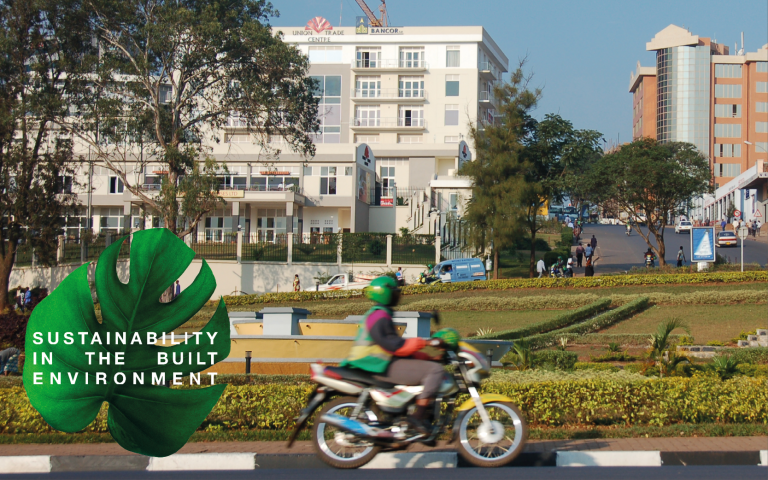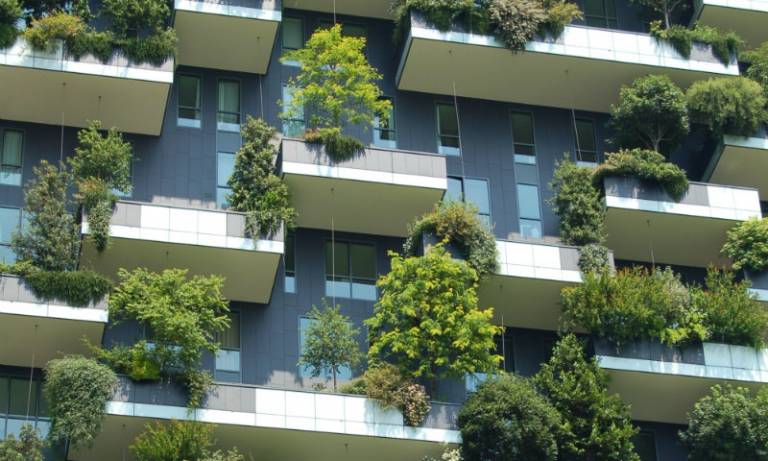Sustainable infrastructure delivery: achieving Sustainable Development Goals in sub-Saharan Africa
2 February 2018
Launching our Sustainability in the Built Environment blog, Dr Alex Opoku writes that government investment in sustainable infrastructure in sub-Saharan Africa is essential to meeting the UN's SDGs.

Dr Alex Opoku is Senior Lecturer in Project Management and Quantity Surveying at the School of Construction and Project Management. His research interest is in the area of Sustainable Built Environment, with particular interest in exploring the link between the UN Sustainable Development Goals (SDGs) and the built environment.
In an effort to tackle the challenges facing the global community, the United Nations Sustainable Development Goals (SDGs) and the Paris Climate Change Agreement (COP21) were adopted in 2015 by the international community, followed by the New Urban Agenda (NUA) in 2016.
Sustainable infrastructure delivery (SID) is critical in achieving all three challenges simultaneously. The 2030 agenda for sustainable development represents a new direction for the global community; delivering infrastructure in a more sustainable way is a key driver in achieving the SDGs in sub-Saharan Africa (SSA) (Bhattacharya et al. 2015).
Sustainable infrastructure has been defined as “infrastructure that is socially inclusive, low carbon and climate resilient” (Bielenberg et al., 2016:2). It also includes infrastructure that supports the conservation and sustainable use of natural resources, and contributes to enhanced livelihoods and social wellbeing (Corfee-Morlot et al., 2016; Bhattacharya et al., 2016).
Delivering sustainable infrastructure is crucial in sustaining the economic growth and sustainable development in SSA. However, SSA has an annual infrastructure funding gap of about $100 billion requiring alternative sources of funding infrastructure projects. Figures from a recent World Bank report estimate that a figure of $57 to $93 trillion of global investment is needed to develop new climate-resilient infrastructure by 2030, with the infrastructure need of sub-Saharan Africa exceeding $93 billion annually over the next 10 years (Corfee-Morlot et al., 2016).
A World Bank report in 2009 - Africa's Infrastructure: A Time for Transformation - noted that national economic growth in SSA could be cut by 2 percentage points yearly with 40% reduction in productivity if the poor state of infrastructure is not tackled. Sustainable infrastructure delivery is vital to building competitiveness, facilitating economic growth, reducing poverty and improving the quality of life of the citizens in SSA region (Bielenberg et al., 2016:2).
Infrastructure is a major driver of economic growth and development and therefore delivering a more sustainable and resilient infrastructure can help the global effort in tackling the effects of the climate change (Qureshi, 2016). Infrastructure is essential for economic progress and sustainable economic development aimed at reducing poverty and unlocking the talent and potential of citizens in the SSA region.
Huge investment in sustainable infrastructure projects is required to help improve the lives and economic well-being of millions of people in sub-Saharan African region. It is therefore important that governments across the sub-Saharan African region increase investment in infrastructure in order to have any chance of achieving the SDGs by 2030.
References
Bielenberg, A., Kerlin, M., Oppenheim, J. and Roberts, M. (2016), Financing Change: How to mobilize private-sector financing for sustainable infrastructure. McKinsey Centre for Business and Environment, New York: McKinsey & Company
Bhattacharya, A., Oppenheim, J., Stern, N. (2015) Delivering sustainable development through better infrastructure: Key elements of a transformation program. Washington DC: Brookings Institution, The Global Commission on the Economy and Climate
Corfee-Morlot, J., Gençsü, I., Rydge, J., Mountford, H., Banaji, F. and Jaeger, J. (2016), The Sustainable Infrastructure Imperative: Financing for Better Growth and Development. The 2016 New Climate Economy Report, Washington: The Global Commission on the Economy and Climate
Qureshi, Z. (2016), Meeting the Challenge of Sustainable Infrastructure: The Role of Public Policy. Washington: The Brookings Institution
World Bank (2009), Africa's Infrastructure: A Time for Transformation. New York: World Bank Publications
 Close
Close


